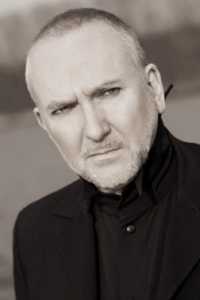Witt became a major star of the German pop scene during the Eighties with huge hits such as “Herbergsvater” and “Goldener Reiter”. He was one of the biggest names of the so-called “neue deutsche welle” (new German wave), a musical movement that people like Nena belonged to.
He made a big comeback at the end of the Nineties, when he scored a major hit with “Die Flut”, a duet with Peter Heppner, the singer of popular German synth pop group Wolfsheim. Witts album Bayreuth Eins (1997) scored platinum in Germany and Austria. Bayreuth Zwei and Bayreuth 3 followed two resp. eight years later. His music in those days resembled the hard hitting sounds of Rammstein, albeit with a gothic touch, that owed a lot of inspiration to legendary German composer Richard Wagner.
Witt was the guitarist/singer in Seventies Krautrock band Duesenberg. He released three albums with them, “Duesenberg” (1977), “Duesenberg 2” (1978) and “Strangers” (1979), before embarking on a solo career as a singer and actor.
1977 Hamburg, Germany
